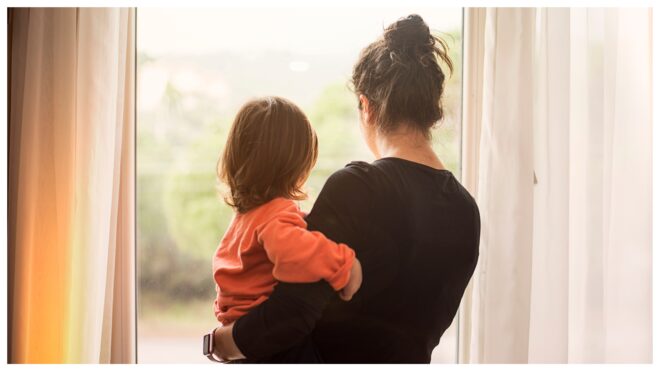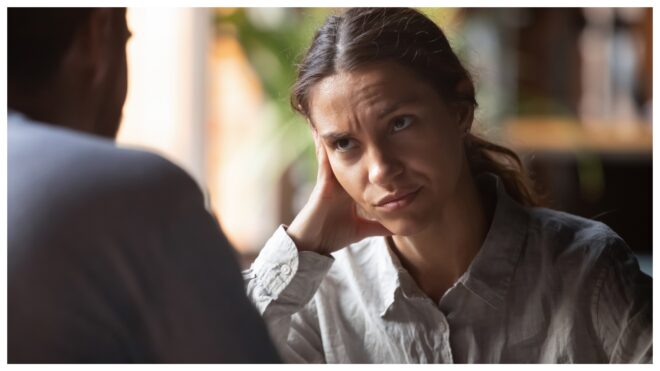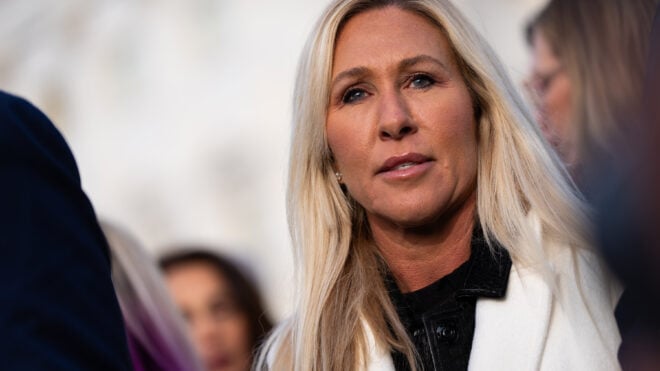
When I left my marriage, I felt one feeling more than anything: relief. Without going into the hows and whys, our relationship had run its course, and moving on was the only option left that served both of us.
In the weeks and months and now years that have lapsed, I haven't experienced even a twinge of regret. That's not a dig at my ex, it's just a fact — one that lets me know I made the right choice.
More from LittleThings: Apologizing To Kids Matters: Why Saying You're Wrong Can Help You Grow As A Parent
But that choice hasn't always been easy. Divorcing when you share a child with someone automatically means your child's life will get harder, and there's no working around that. My child's life grew measurably more challenging when we divorced. While I hope that one day things will feel easier for him, I am beginning to understand that both of his parents have work to do before that can be the case.
I don't know about you, but I have been surprised by the things that have surfaced in the years that have lapsed since I first said out loud that the marriage was over. I've worked through a lot feelings and thoughts at appropriate times — frustration with custody conversations, confusion when navigating dating as a divorced mom, happiness and caution with someone I love very much.
I made the rookie mistake of thinking I had myself all worked out nine months after that January when I said it was over, getting on a dating app for the second time in my life, and meeting an incredible man about an hour later. We're still together, but it's not because I actually had all my ducks in a row in terms of emotional maturity and relationship readiness. Luckily, he's patient, and I'm committed to figuring out what adult relationships are like. After all, when you get married in your early 20s and divorced 13 years later, there's a whole wide world of adult interaction out there that you just … missed.
While there's a lot of advice out there for single moms who are entering into relationships again, I haven't found a lot that really addresses one part of what happens after you are the one to leave your marriage: You have to enter into a period of true forgiveness, no matter how relieved you might be that the marriage is over, no matter how much you believe in the decision you made. No matter how much you might think that the other person is the one who did everything wrong, you have to acknowledge that there are three truths in every situation: yours, theirs, and something in the middle that gets close to what really happened.
Being willing to forgive someone and to forgive yourself for what transpired between the two of you isn't an admission of regret; in fact, I think it's necessary to really allow yourself to grow up and forward. I think you have to forgive the past to really embrace the present — and to be able to leap into a future that is hopefully filled with joy and love.
What you might have to forgive will be as unique and as personal as every marriage that has ended. Some of the things you will need to forgive might not seem that significant, like the way someone's work schedule made you feel lesser than. But other things might be pretty gigantic, like the miscarriage your partner didn't even realize you experienced because they didn't really see you.
To me, this period of forgiveness shouldn't be confused with a period of mourning if you truly believe you made the right decision to leave. Forgiving is a release for both of you, even if the other person isn't remotely close to returning the favor — even if they never are. Forgiving is what will allow you to embrace opportunities that you never thought you would have in real life; forgiveness is what will help lighten your soul on the nights when you are away from your child and missing them so much. Forgiveness will let you see humanity in the person you might never want to see again (and you can experience both of those things at the same time).
Truly forgiving is what will allow you to not make things personal — if you find yourself asking, "How could this person have treated me this way?" then you probably haven't let go of the relationship as much as you think you have, but if you find yourself acknowledging the flaws in yourself and in your former partner and recognizing them as part of what it means to be human, I think you're well on your way.
(Now is a great time to stress that there are some things that are unforgivable; if someone was cruel and mistreated and/or abused you, that is an entirely different experience.)
I don't have all the answers; I don't even really have any. What I'm writing now is in real time, written right where I'm at in my own process of realizing my self as a 37-year-old woman who is learning to stand in the sun. Forgiveness is what has allowed me to begin to be free.







